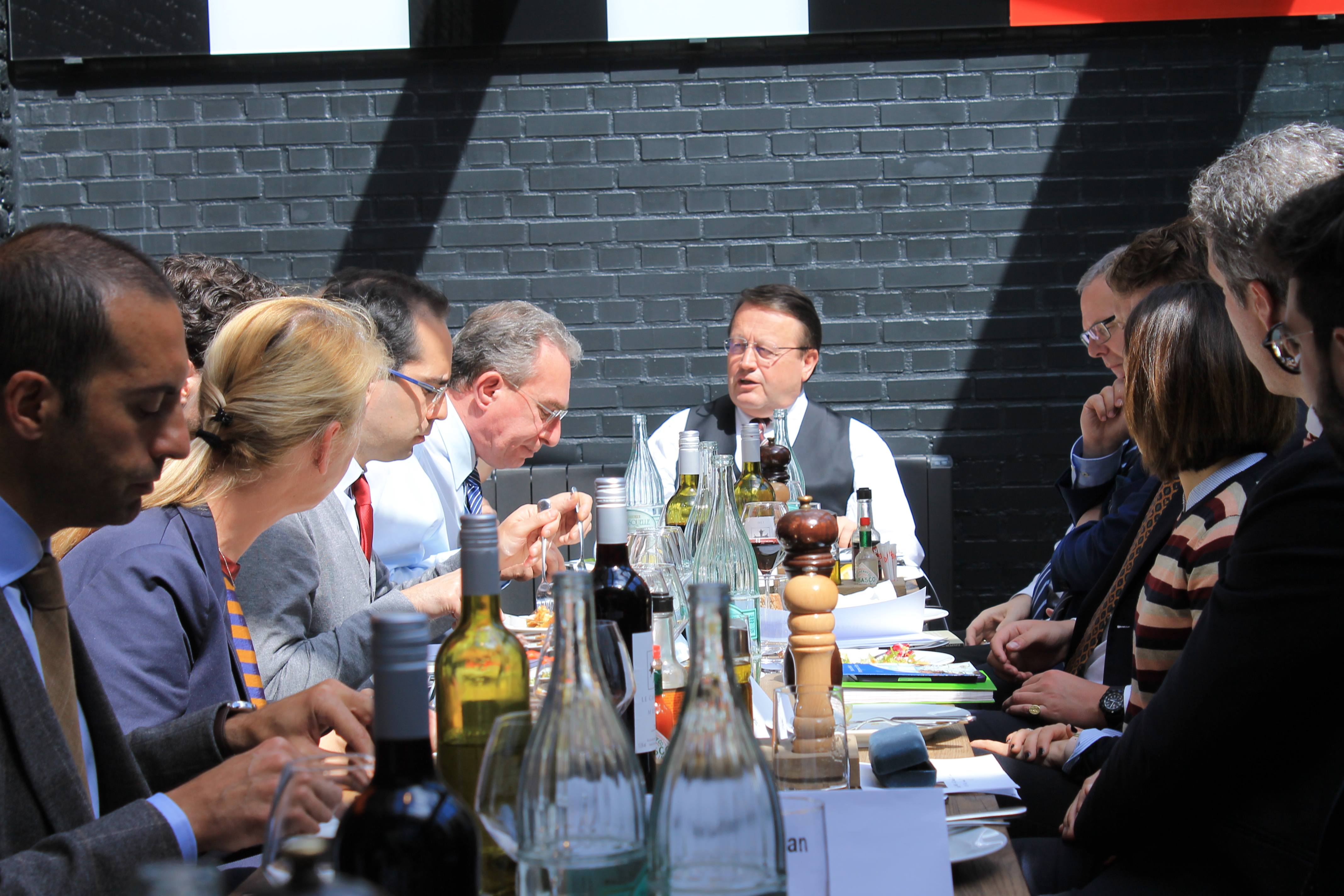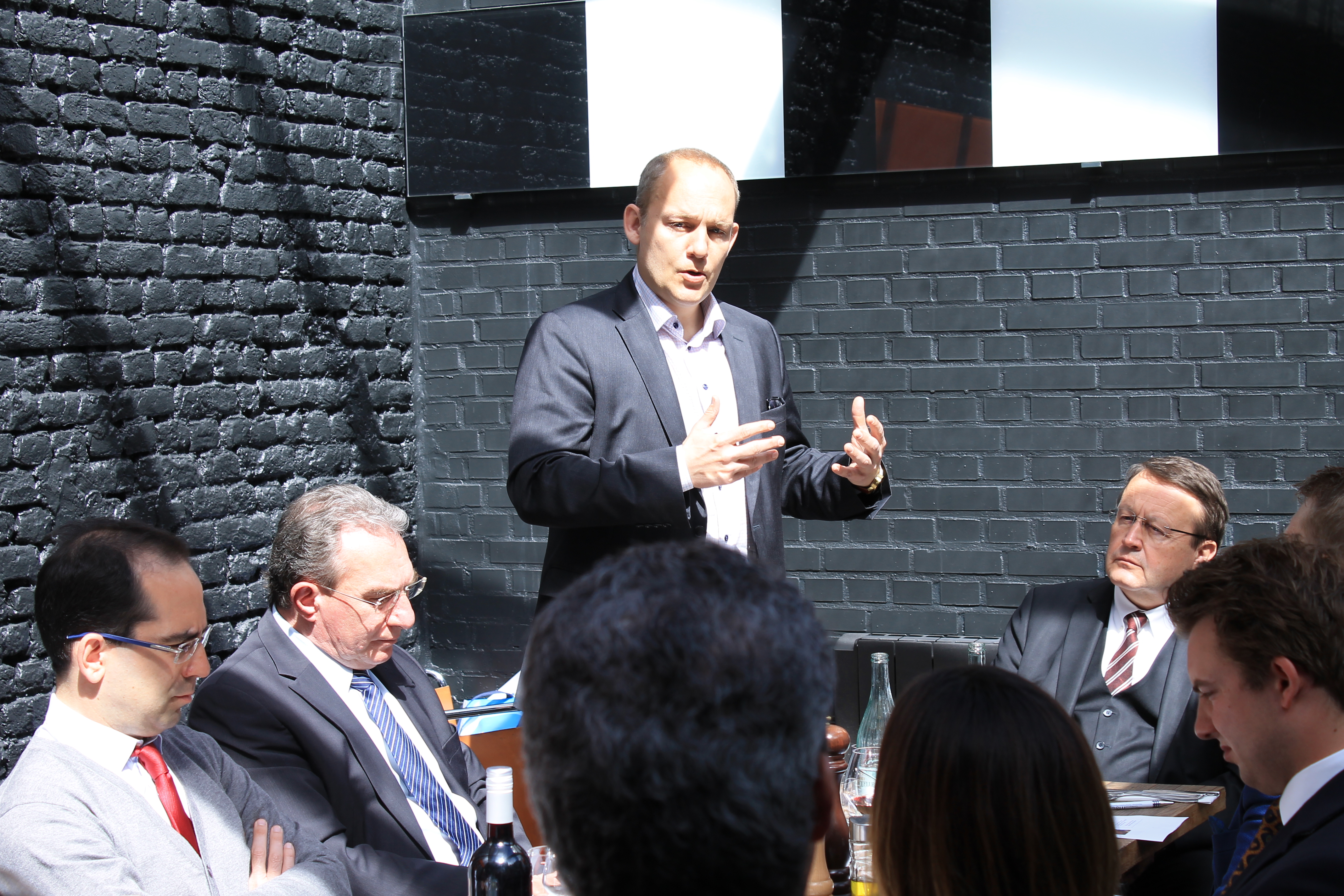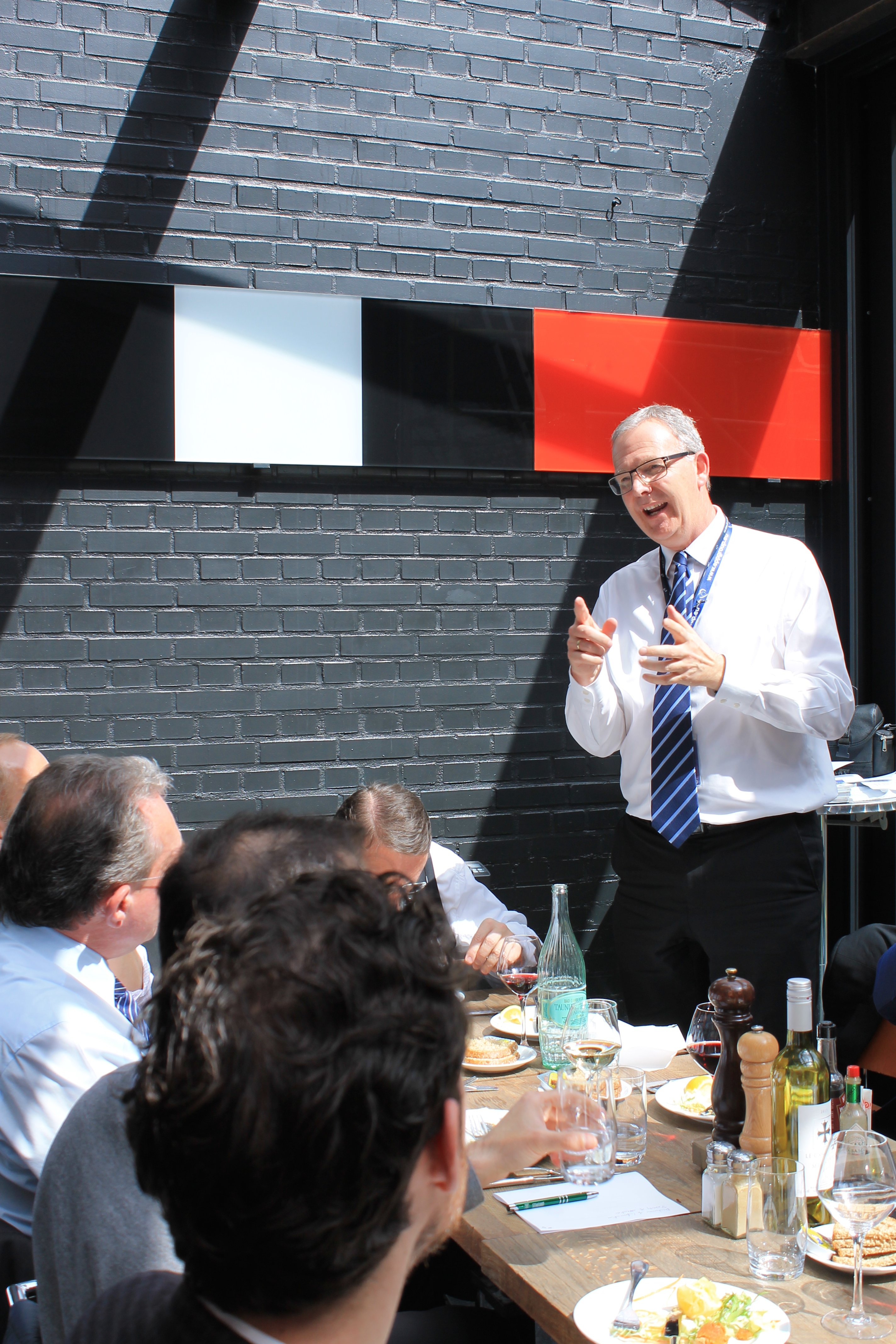Future growth and innovation of European SMEs in the age of Artificial Intelligence
On 25th April 2017 SME EUROPE of the EPP in cooperation with Friends of SMEs and Google conducted a Working Lunch considering the following topic: “Future growth and innovation of European SMEs in the age of Artificial Intelligence”. The Speakers of the event included Dr. Paul Rübig MEP, Honorary President of SME EUROPE, Member of ITRE and Chair of STOA Committee , Dr. Nicklas Lundblad, Professor of Innovation at the Royal Institute of Technology in Stockholm, Vice President of Public Policy and Government Relations for Europe, Middle East and Africa at Google, Axel Voss MEP, Member of JURI, Opinion Rapporteur on Respect for Private Life and the Protection of Personal Data in Electronic Communications, Iuliu Winkler MEP, First Vice President of SME EUROPE, Vice Chair on Committee of International Trade .
Paul Rübig MEP commenced the event welcoming guests and stating that Artificial Intelligence is certainly part of growth, but has to take into account interests and ideas of 20 million small and medium sized businesses. It is already well known how much the topic of data protection and data ownership is debated and how challenging it is to reach conclusions. Nevertheless, the only way to create legislation is to reassure that the adopted regualtion will be suitable for businesses of all scales
Nicklas Lundblad, explained that the majority of Startups are very active in Artificial Intelligence field as well as in sectors, where the major quantity of data is circulating and which therefore are highly regulated for the moment. Europe has a strong heritage of innovation, as many cutting-edge projects have been housed on the European continent. He agrees that there are issues in terms of reaching a credible legislative framework, this is because there are 28 different rulebooks throughout the EU member states, whereas in the USA for example, there is only one set of guidelines for all.
Axel Voss MEP was next to the floor expressing his concerns about the general perception of certain legislation related to ethical questions, liability, and social system impact. However the framework of each legislative text should desire to move forward and implement a different way of thinking. EU legislation regarding robotics and other areas of automation has to become more modern, informative and coherent for the citizens changing their mindsets. However, no concrete suggestions have been developed as yet.
Iuliu Winkler MEP felt that the majority of Industrial and SME associations are not sharing the same excitement and understanding regarding the development in the sector which makes quite clear the fact, that the social aspect of the future requires our strong attention. The modern world can be characterized by raising inequality, anti-globalism and anti-free-trade movements which are continuing to argue that; “trade agreements are stealing our jobs” – this sort of accusation can however be contradicted by facts. However, the argument that the globalization process is increasing inequality is honest and not possible to debate against. We have to find ways and answers to how robotics may generate better impact for a vast majority of the population, not only to a select few. Until then, it is under risk of being unpopular and opposed.
For more pictures, please, follow the link





